نقد و بررسی
مبانی نظری و پیشینه پژوهش قصد کارآفرینی با منابع 2023-2024فهرست مطالب:
- کارآفرینی
- قصد کارآفرینی
- تئوریهای قصد کارآفرینی
- تئوری رفتار برنامهریزی شده
- مدل اصلاح شده تئوری رفتار برنامهریزی شده
- تئوری عمل منطقی
- نگرش نسبت به رفتار
- هنجارهای ذهنی پیرامون رفتار
- منابع فارسی
- منابع غیر فارسی
بخشی از محصول
بي ترديد کارآفريني نقش بسيار کليدي در توسعه اقتصادي و پايدار همه جوامع دارد. به قول شومپيتر ، کارآفريني موتور توسعه اقتصادي است که بدون آن هيچ کشوري نمي تواند به توسعهي اقتصادي دست يابد. در نظام اقتصادي توسعه يافته نوآوران، صاحبان فكر و ايده سرمايههاي اصلي يك بنگاه اقتصادي و از عوامل اصلي توسعه پايدار محسوب ميشوند. امروزه ساختار اقتصادي دنيا با گذشته به طور اساسي تفاوت دارد. توسعه اقتصادي دنياي امروز بر پايه نوآوري وخلاقيت و استفاده از دانش استوار است. اين اقتصاد را اقتصاد مبتني بر دانش يا اقتصاد دانش محور گويند (باکر و همكاران، 2023).
منابع فارسی
- خراسی، ساناز ، ولی پور، ابوالفضل،(1402)،شناسایی و رتبه بندی مزایای کسب وکارهای خانگی اینترنتی درحوزه کارآفرینی از دیدگاه دانشجویان رشته مدیریت دانشگاه آزاد اسلامی واحد بندرعباس،هفدهمین کنفرانس ملی اقتصاد، مدیریت و حسابداری،شیروان،https://civilica.com/doc/1898346
- شعبان نژادگیلاکجانی، بابک،(1402)،اعتبارسنجی و آسیب شناسی طرح ساماندهی و حمایت از مشاغل خانگی،هفتمین همایش بین المللی دانش و فناوری هزاره سوم اقتصاد، مدیریت و حسابداری ایران،تهران،https://civilica.com/doc/1964157
- کیومرثی بیرک علیا، سمانه و سجاسی قیداری، حمداله و بوزرجمهری، خدیجه،(1402)،تحلیل عوامل موثر بر توسعه کسب وکارهای خانوادگی زنان روستایی (مطالعه موردی: شهرستان فاروج)،https://civilica.com/doc/1805361
Non-Persian References
- Baker, M., Gray, R. & Schaltegger, S. (2023). Debating accounting and sustainability: From incompatibility to rapprochement in pursuing corporate sustainability. Account. Audit. Account. J. 36(2), 591–619
- Biancardi, A. et al. (2023). Strategies for developing sustainable communities in higher education institutions. Sci. Rep. 13(1), 20596.
- Breznitz, S. M. & Zhang, Q. (2022). Entrepreneurship education and firm creation. Reg. Stud. 56(6), 940–955.
- Bliemel, M., Flores, R., De Klerk, S. & Miles, M. P. (2019). Accelerators as start-up infrastructure for entrepreneurial clusters. Entrep. Reg. Dev. 31(1–2), 133–149.
- Bindra, S., Sharma, D., Achhnani, B., Mishra, H. G. & Ongsakul, V. (2022). Critical factors for knowledge management implementation: A TISM validation. J. Int. Bus. Entrep. Dev. 14(1), 125–144.
- Chillayil, J., Suresh, M., Viswanathan, P. K. & Kottayil, S. K. (2021). Is imperfect evaluation a deterrent to adopting energy audit recommendations?. Int. J. Product. Perform. Manag. https://doi.org/10.1108/IJPPM-05-2020-0236
- Christensen, P. K., Skovgaard, C. O., and Petersen, M. G. (2019). “Together together: combining shared and separate activities in designing technology for family life,” in Proceedings of the 18th ACM International Conference on Interaction Design and Children, ser. IDC ’19, Boise, ID, USA, June 12-15, 2019 (New York, NY, USA: Association for Computing Machinery), 374–385. doi:10.1145/3311927.3323141
- Chung, C., and Santos, E. (2018). “Robofest carnival—stem learning through robotics with parents,” in 2018 IEEE Integrated STEM Education Conference (ISEC), Princeton, NJ, USA, 10-10 March 2018 (IEEE), 8–13.
- Del Vecchio, P., Secundo, G., Mele, G. & Passiante, G. (2021). Sustainable entrepreneurship education for circular economy: Emerging perspectives in Europe. Int. J. Entrep. Behav. Res. 27(8), 2096–2124.
- Fanea-Ivanovici, M. & Baber, H. (2022). Sustainability at universities as a determinant of entrepreneurship for sustainability. Sustainability 14(1), 454.
- Hossain, M., & Rahman, M. (2018). Social Media and the Creation of Entrepreneurial Opportunity for Women. https://doi.org/10.5923/j.mm.20180804.02
- Jones, O., Meckel, P. & Taylor, D. (2021). Situated learning in a business incubator: Encouraging students to become real entrepreneurs. Ind. High. Educ. 35(4), 367–383.
- Kotla, B. & Bosman, L. (2023). Redefining sustainability and entrepreneurship teaching. Trends High. Educ. 2(3), 498–513.
- Klapper, R. G. & Fayolle, A. (2023). A transformational learning framework for sustainable entrepreneurship education: The power of Paulo Freire’s educational model. Int. J. Manag. Educ. 21(1), 100729.
- Kim, R. C. (2022). Rethinking corporate social responsibility under contemporary capitalism: Five ways to reinvent CSR. Bus. Ethics Environ. Responsib. 31(2), 346–362
- Mathivathanan, D., Mathiyazhagan, K., Rana, N. P., Khorana, S. & Dwivedi, Y. K. (2021). Barriers to the adoption of blockchain technology in business supply chains: A total interpretive structural modelling (TISM) approach. Int. J. Prod. Res. 59, 3338–3359.
- Malik, S., Alkhaldi, A., Salamzadeh, A. and Mantas, C. (2024). “A systematic literature review on home-based businesses: two decades of research”, Journal of Family Business Management, Vol. ahead-of-print No. ahead-of-print. https://doi.org/10.1108/JFBM-03-2024-0062.
- Nations sustainable development goals: Lessons for higher education institutions. Educ. Sci. 13(9), 935 (2023).
- Nosratabadi, S. et al. (2019). Sustainable business models: A review. Sustainability 11(6), 1663.
- Ndou, V., Secundo, G., Schiuma, G. & Passiante, G. (2018). Insights for shaping entrepreneurship education: Evidence from the European entrepreneurship centers. Sustainability 10(11), 4323.
- Omotosho, A. O., Akintolu, M., Kimweli, K. M. & Modise, M. (2023). Assessing the enactus global sustainability initiative’s alignment with United Nations sustainable development goals: Lessons for higher education institutions. Educ. Sci. 13(9), 935.
- Sultan, S., Sultan, W., Hudson, M. and Izhiman, N. (2024). “The growth potential of Palestinian family businesses: immigrant versus home-country entrepreneurship”, Review of International Business and Strategy, Vol. 34 No. 3, pp. 368-386. https://doi.org/10.1108/RIBS-09-2023-0111
- Soluk, J., Kammerlander, N., & Darwin, S. (2021b). Digital entrepreneurship in developing countries: The role of institutional voids. Technological Forecasting and Social Change, 170, 120876. https://doi.org/10.1016/j.techfore.2021.120876
- Soluk, J., Kammerlander, N., & De Massis, A. (2021). Exogenous shocks and the adaptive capacity of family firms: exploring behavioral changes and digital technologies in the COVID-19 pandemic. R&D Management, 51(4), 364-380. https://doi.org/10.1111/radm.12471
- Torri, M.-C. (2010). Community-based Enterprises: A Promising Basis towards an Alternative Entrepreneurial Model for Sustainability Enhancing Livelihoods and Promoting Socio-economic Development in Rural India. Journal of Small Business & Entrepreneurship, 23(2), 237-248. https://doi.org/10.1080/08276331.2010.10593484
- Ye, Q., Zhou, R., Anwar, M. A., Siddiquei, A. N. & Asmi, F. (2020). Entrepreneurs and environmental sustainability in the digital era: Regional and institutional perspectives. Int. J. Environ. Res. Public Health 17(4), 1355.
- Zilincikova, M. & Stofkova, Z. (2021). Entrepreneurship education as a competitiveness support in the conditions of globalisation. In INTED2021 Proceedings 7833–7840 (IATED, 2021).
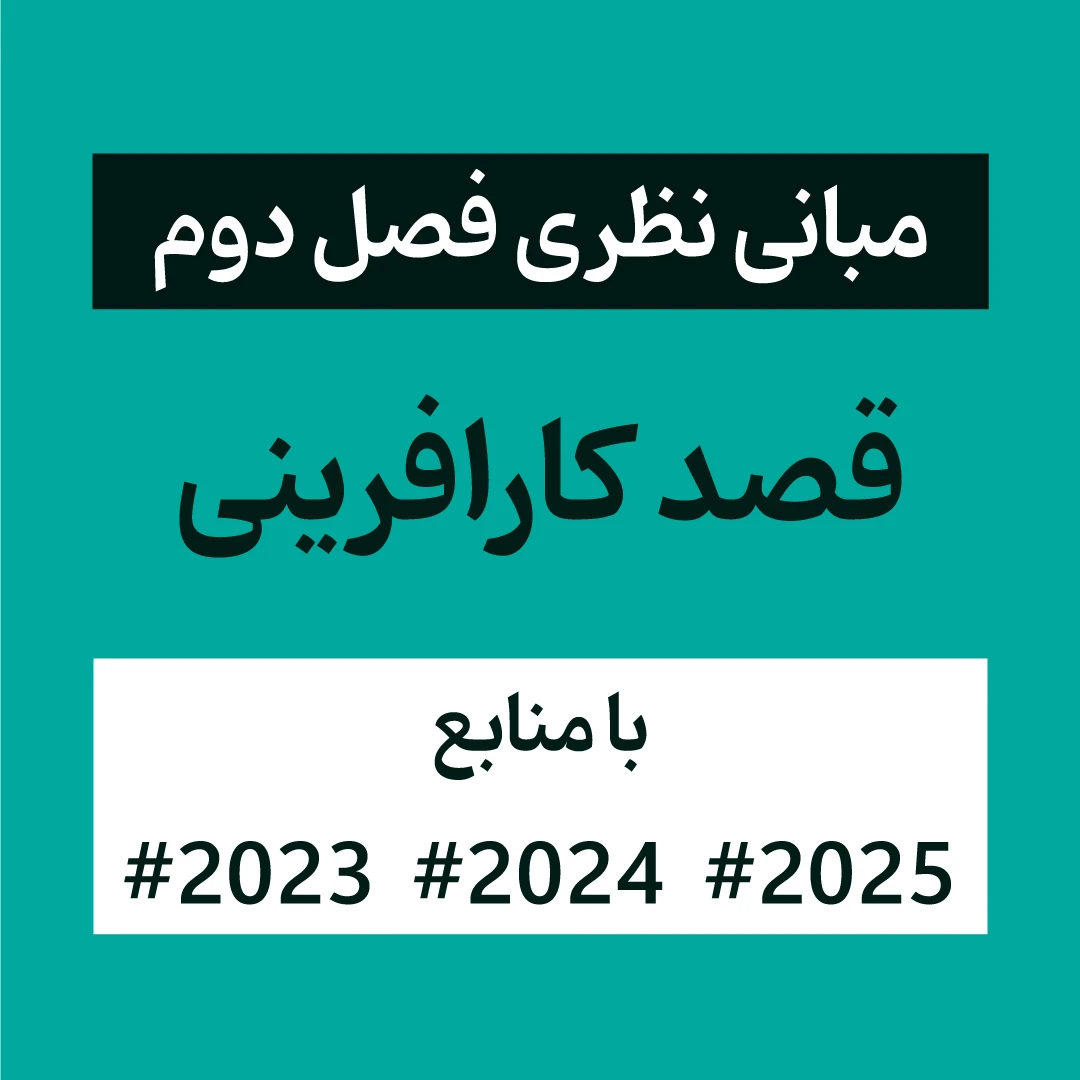

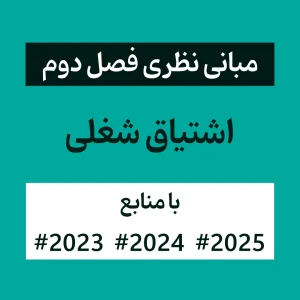
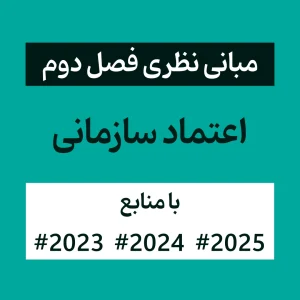
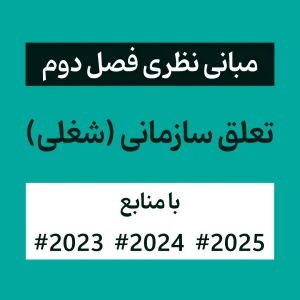
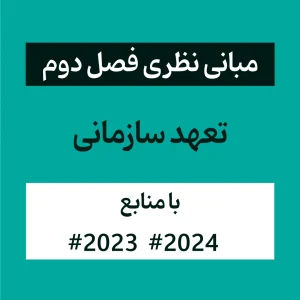
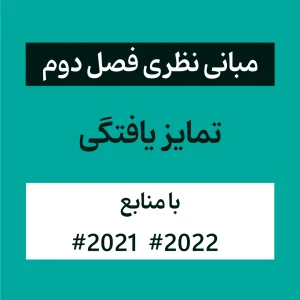

0دیدگاه